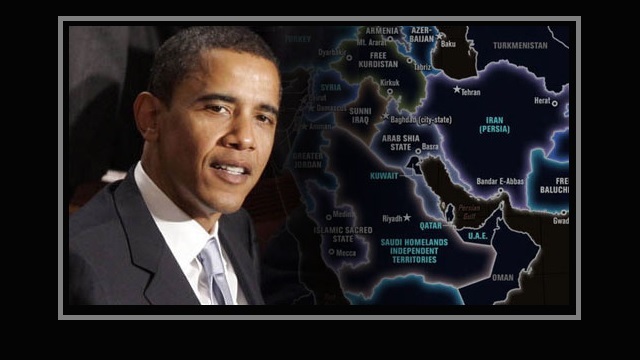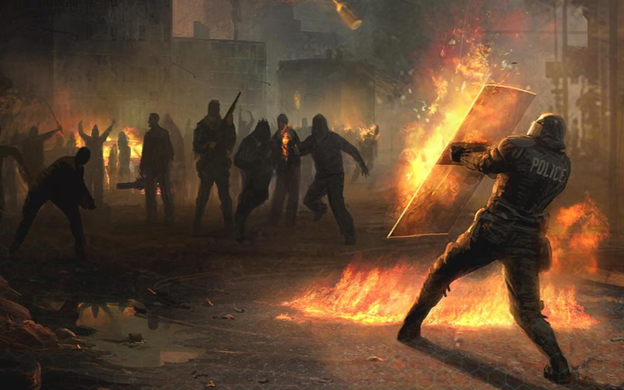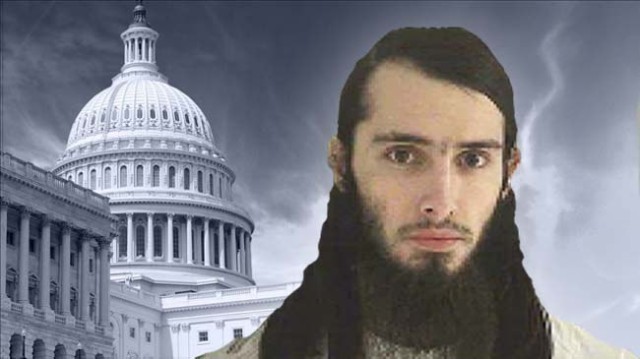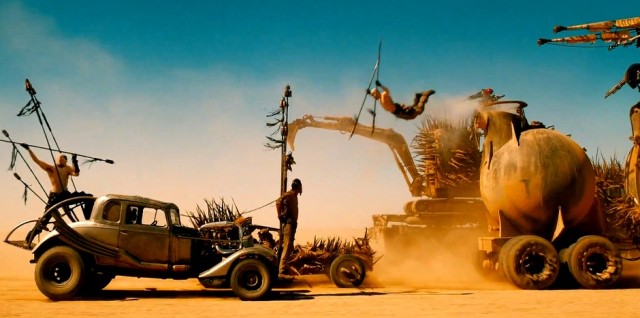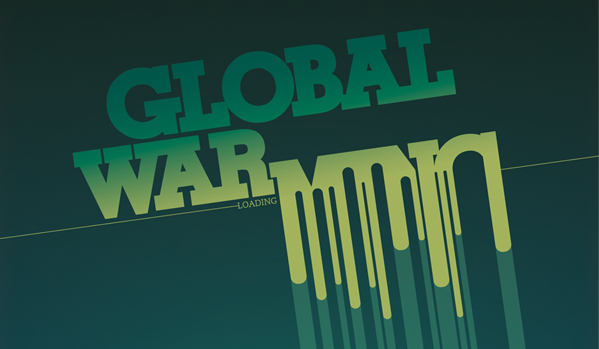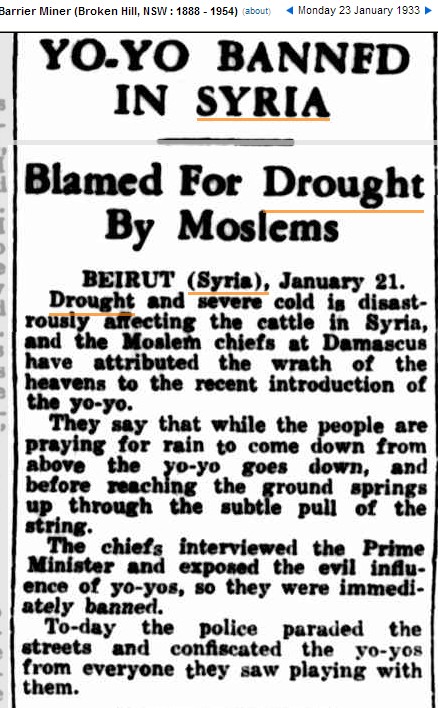The idea that Islam needs to reform is again in the spotlight following the recent publication of Ayaan Hirsi Ali’s new book, Heretic: Why Islam Needs a Reformation Now. While Hirsi Ali makes the argument that Islam can reform—and is in desperate need of taking the extreme measures she suggests to do so—many of her critics offer a plethora of opposing claims, including that Islam need not reform at all.
The one argument not being made, however, is the one I make below—namely, that Islam has already “reformed.” And violence, intolerance, and extremism—typified by the Islamic State (“ISIS”)—are the net result of this “reformation.”
Such a claim only sounds absurd due to our understanding of the word “reform.” Yet despite its positive connotations, “reform” simply means to “make changes (in something, typically a social, political, or economic institution or practice) in order to improve it.”
Synonyms of “reform” include “make better,” “ameliorate,” and “improve”—splendid words all, yet words all subjective and loaded with Western connotations.
Muslim notions of “improving” society can include purging it of “infidels” and “apostates,” and segregating Muslim men from women, keeping the latter under wraps or quarantined at home. Banning many forms of freedoms taken for granted in the West—from alcohol consumption to religious and gender equality—is an “improvement” and a “betterment” of society from a strictly Islamic point of view.
In short, an Islamic reformation will not lead to what we think of as an “improvement” and “betterment” of society—simply because “we” are not Muslims and do not share their first premises and reference points. “Reform” only sounds good to most Western peoples because they naturally attribute Western connotations to the word.
Historical Parallels: Islam’s Reformation and the Protestant Reformation
At its core, the Protestant Reformation was a revolt against tradition in the name of scripture—in this case, the Bible. With the coming of the printing press, increasing numbers of Christians became better acquainted with the Bible’s contents, parts of which they felt contradicted what the Church was teaching. So they broke away, protesting that the only Christian authority was “scripture alone,” sola scriptura.
Islam’s current reformation follows the same logic of the Protestant Reformation—specifically by prioritizing scripture over centuries of tradition and legal debate—but with antithetical results that reflect the contradictory teachings of the core texts of Christianity and Islam.
As with Christianity, throughout most of its history, Islam’s scriptures, specifically its “twin pillars,” the Koran (literal words of Allah) and the Hadith (words and deeds of Allah’s prophet, Muhammad), were inaccessible to the overwhelming majority of Muslims. Only a few scholars, or ulema—literally, “they who know”—were literate in Arabic and/or had possession of Islam’s scriptures. The average Muslim knew only the basics of Islam, or its “Five Pillars.”
In this context, a “medieval synthesis” flourished throughout the Islamic world. Guided by an evolving general consensus (or ijma‘), Muslims sought to accommodate reality by, in medieval historian Daniel Pipes’ words,
translat[ing] Islam from a body of abstract, infeasible demands [as stipulated in the Koran and Hadith] into a workable system. In practical terms, it toned down Sharia and made the code of law operational. Sharia could now be sufficiently applied without Muslims being subjected to its more stringent demands… [However,] While the medieval synthesis worked over the centuries, it never overcame a fundamental weakness: It is not comprehensively rooted in or derived from the foundational, constitutional texts of Islam. Based on compromises and half measures, it always remained vulnerable to challenge by purists (emphasis added).
This vulnerability has now reached breaking point: millions of more Korans published in Arabic and other languages are in circulation today compared to just a century ago; millions of more Muslims are now literate enough to read and understand the Koran compared to their medieval forbears. The Hadith, which contains some of the most intolerant teachings and violent deeds attributed to Islam’s prophet—including every atrocity ISIS commits, such as beheading, crucifying, and burning “infidels,” even mocking their corpses—is now collated and accessible, in part thanks to the efforts of Western scholars, the Orientalists. Most recently, there is the Internet—where all these scriptures are now available in dozens of languages and to anyone with a laptop or iphone.
In this backdrop, what has been called at different times, places, and contexts “Islamic fundamentalism,” “radical Islam,” “Islamism,” and “Salafism” flourished. Many of today’s Muslim believers, much better acquainted than their ancestors with the often black and white teachings of their scriptures, are protesting against earlier traditions, are protesting against the “medieval synthesis,” in favor of scriptural literalism—just like their Christian Protestant counterparts once did.
Thus, if Martin Luther (d. 1546) rejected the extra-scriptural accretions of the Church and “reformed” Christianity by aligning it exclusively with scripture, Muhammad ibn Abdul Wahhab (d. 1787), one of Islam’s first modern reformers, “called for a return to the pure, authentic Islam of the Prophet, and the rejection of the accretions that had corrupted it and distorted it” (Bernard Lewis,The Middle East, p. 333).
The unadulterated words of God—or Allah—are all that matter for the “reformists,” with ISIS at their head.
Note: Because they are better acquainted with Islam’s scriptures, other Muslims, of course, are apostatizing—whether by converting to other religions, most notably Christianity, or whether by abandoning religion altogether, even if only in their hearts (for fear of the apostasy penalty). This is an important point to be revisited later. Muslims who do not become disaffected after becoming better acquainted with the literal teachings of Islam’s scriptures, and who instead become more faithful to and observant of them are the topic of this essay.
Christianity and Islam: Antithetical Teachings, Antithetical Results
How Christianity and Islam can follow similar patterns of reform but with antithetical results rests in the fact that their scriptures are often antithetical to one another. This is the key point, and one admittedly unintelligible to postmodern, secular sensibilities, which tend to lump all religious scriptures together in a melting pot of relativism without bothering to evaluate the significance of their respective words and teachings.
Obviously a point by point comparison of the scriptures of Islam and Christianity is inappropriate for an article of this length (see my “Are Judaism and Christianity as Violent as Islam” for a more comprehensive treatment).
Suffice it to note some contradictions (which naturally will be rejected as a matter of course by the relativistic mindset):
- The New Testament preaches peace, brotherly love, tolerance, and forgiveness—for all humans, believers and non-believers alike. Instead of combating and converting “infidels,” Christians are called to pray for those who persecute them and turn the other cheek (which is not the same thing as passivity, for Christians are also called to be bold and unapologetic). Conversely, the Koran and Hadith call for war, or jihad, against all non-believers, until they either convert, accept subjugation and discrimination, or die.
- The New Testament has no punishment for the apostate from Christianity. Conversely, Islam’s prophet himself decreed that “Whoever changed his Islamic religion, then kill him.”
- The New Testament teaches monogamy, one husband and one wife, thereby dignifying the woman. The Koran allows polygamy—up to four wives—and the possession of concubines, or sex-slaves. More literalist readings treat all women as possessions.
- The New Testament discourages lying (e.g., Col. 3:9). The Koran permits it; the prophet himself often deceived others, and permitted lying to one’s wife, to reconcile quarreling parties, and to the “infidel” during war.
It is precisely because Christian scriptural literalism lends itself to religious freedom, tolerance, and the dignity of women, that Western civilization developed the way it did—despite the nonstop propaganda campaign emanating from academia, Hollywood, and other major media that says otherwise.
And it is precisely because Islamic scriptural literalism is at odds with religious freedom, tolerance, and the dignity of women, that Islamic civilization is the way it is—despite the nonstop propaganda campaign emanating from academia, Hollywood, and other major media that says otherwise.
The Islamic Reformation Is Here—and It’s ISIS
Those in the West waiting for an Islamic “reformation” along the same lines of the Protestant Reformation, on the assumption that it will lead to similar results, must embrace two facts: 1) Islam’s reformation is well on its way, and yes, along the same lines of the Protestant Reformation—with a focus on scripture and a disregard for tradition—and for similar historic reasons (literacy, scriptural dissemination, etc.); 2) But because the core teachings of the founders and scriptures of Christianity and Islam markedly differ from one another, Islam’s reformation is producing something markedly different.
Put differently, those in the West calling for an “Islamic reformation” need to acknowledge what it is they are really calling for: the secularization of Islam in the name of modernity; the trivialization and sidelining of Islamic law from Muslim society. That is precisely what Ayaan Hirsi Ali is doing. Some of her reforms as outlined in Heretic call for Muslims to begin doubting Muhammad (whose words and deeds are in the Hadith) and the Koran—the very two foundations of Islam.
That would not be a “reformation”—certainly nothing analogous to the Protestant Reformation.
Habitually overlooked is that Western secularism was, and is, possible only because Christian scripture lends itself to the division between church and state, the spiritual and the temporal.
Upholding the literal teachings of Christianity is possible within a secular—or any—state. Christ called on believers to “render unto Caesar the things of Caesar [temporal] and unto God the things of God [spiritual]” (Matt. 22:21). For the “kingdom of God” is “not of this world” (John 18:36). Indeed, a good chunk of the New Testament deals with how “man is not justified by the works of the law… for by the works of the law no flesh shall be justified” (Gal. 2:16).
On the other hand, mainstream Islam is devoted to upholding the law; and Islamic scripture calls for a fusion between Islamic law—Sharia—and the state. Allah decrees in the Koran that “It is not fitting for true believers—men or women—to take their choice in affairs if Allah and His Messenger have decreed otherwise. He that disobeys Allah and His Messenger strays far indeed!” (33:36). Allah tells the prophet of Islam, “We put you on an ordained way [literarily in Arabic, sharia] of command; so follow it and do not follow the inclinations of those who are ignorant” (45:18).
Mainstream Islamic exegesis has always interpreted such verses to mean that Muslims must follow the commandments of Allah as laid out in the Koran and the example of Muhammad as laid out in the Hadith—in a word, Sharia.
And Sharia is so concerned with the details of this world, with the everyday doings of Muslims, that every conceivable human action falls under five rulings, or ahkam: the forbidden (haram), the discouraged (makruh), the neutral (mubah), the recommended (mustahib), and the obligatory (wajib).
Conversely, Islam offers little concerning the spiritual (sidelined Sufism the exception).
Unlike Christianity, then, Islam without the law—without Sharia—becomes meaningless. After all, the Arabic word Islam literally means “submit.” Submit to what? Allah’s laws as codified in Sharia and derived from the Koran and Hadith—the very three things Ali is asking Muslims to start doubting.
The “Islamic reformation” some in the West are calling for is really nothing less than an Islam without Islam—secularization not reformation; Muslims prioritizing secular, civic, and humanitarian laws over Allah’s law; a “reformation” that would slowly see the religion of Muhammad go into the dustbin of history.
Such a scenario is certainly more plausible than believing that Islam can be true to its scriptures and history in any meaningful way and still peacefully coexist with, much less complement, modernity the way Christianity does.
RELATED ARTICLES:
UCLA Prof Khaled Abou El Fadl Condemns ISIS, But Does He Condemn Stealth Jihad?
Virginia Muslima, Islamic State supporter, gets 4 1/2 years prison for lying to FBI

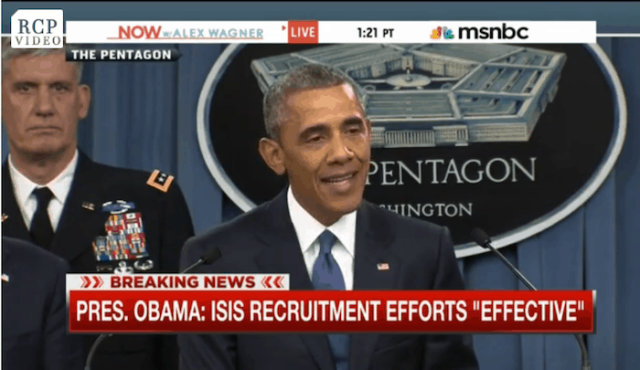
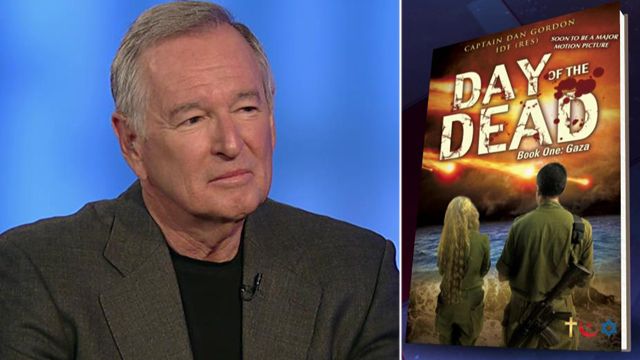
 We have interviewed many wonderful people on our show, “Enemies of the State,” and just a few have earned the description of “Renaissance Man.” Today we introduce you to a true Renaissance Warrior, Israel Defense Force Captain Dan Gordon (Reserve) who is both a citizen of Israel and the United States of America.
We have interviewed many wonderful people on our show, “Enemies of the State,” and just a few have earned the description of “Renaissance Man.” Today we introduce you to a true Renaissance Warrior, Israel Defense Force Captain Dan Gordon (Reserve) who is both a citizen of Israel and the United States of America.


